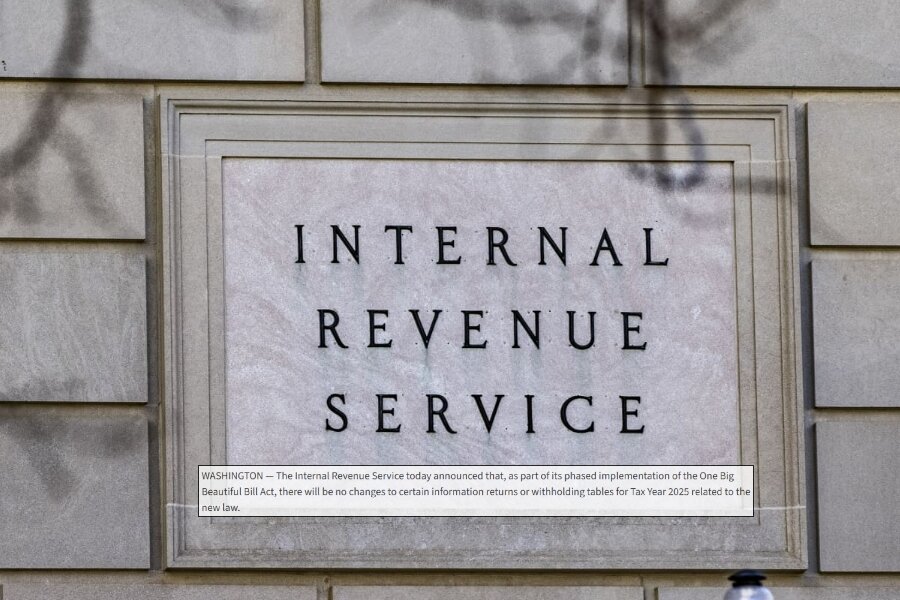There will be no changes to individual information returns or withholding tables for the 2025 tax year while the IRS implements the One Big Beautiful Bill Act (OBBB) in a phased manner, the agency said in an Aug. 7 statement.
Information returns are documents that businesses must file with the IRS, reporting transactions such as wages paid to employees. The IRS’s withholding tables describe how much an employer must withhold from an employee’s paycheck for taxes, Social Security, and Medicare.
The OBBB was signed into law by President Donald Trump on July 4 and included certain provisions related to taxes.
The IRS clarified that information return forms such as forms W-2, 1099, and 941 “will remain unchanged” for tax year 2025. The federal income tax withholding tables will not be updated with OBBB provisions, the agency said.
“These decisions are intended to avoid disruptions during the tax filing season and to give the IRS, business, and tax professionals enough time to implement the changes effectively,” the agency said.
The IRS asked employers and payroll providers to continue using existing procedures when it comes to reporting and withholding taxes. As for tax year 2026, the IRS said it was working to update forms and develop new guidance. The new changes will include how overtime pay and tips are reported. The IRS said it plans to coordinate with payroll providers, tax professionals, and employers to ensure a smooth transition to the new rules.
Although there is no change in information returns or withholding tables, the OBBB has multiple provisions providing tax relief for Americans effective this year. For one, the OBBB eliminates taxes on tips, according to a July 14 statement from the IRS.
Employees and self-employed individuals can deduct tips from their tax returns, provided their occupations are listed by the IRS as customarily receiving tips. The IRS must publish a list of these occupations by Oct. 2. The maximum annual deduction allowed in this case is $25,000, which phases out for taxpayers whose modified adjusted gross income is more than $150,000.
Secondly, the OBBB eliminates taxes on overtime.
“Individuals who receive qualified overtime compensation may deduct the pay that exceeds their regular rate of pay,” the IRS said.
The maximum overtime deduction for a taxpayer is $12,500 per annum, which is phased out as income rises. To claim the deduction, taxpayers are required to include their Social Security numbers on their tax returns. Married individuals must file jointly to claim the deduction. For joint filers, it goes up to $25,000.
Third, the car loan interest tax has been canceled by the OBBB.
“Individuals may deduct interest paid on a loan used to purchase a qualified vehicle, provided the vehicle is purchased for personal use and meets other eligibility criteria,” the IRS said, adding that lease payments do not qualify for this benefit. To be considered a qualified deduction, the interest must be on a loan that originated after Dec. 31, 2024. The vehicle must have undergone final assembly in the United States.
Fourth, Americans aged 65 and older can claim a tax deduction of $6,000, which is in addition to the existing standard deduction for this demographic. The deduction phases out for seniors with a modified adjusted gross income of more than $75,000.
These four tax relief provisions are effective from 2025 through 2028.
Share your thoughts by scrolling down to leave a comment.













